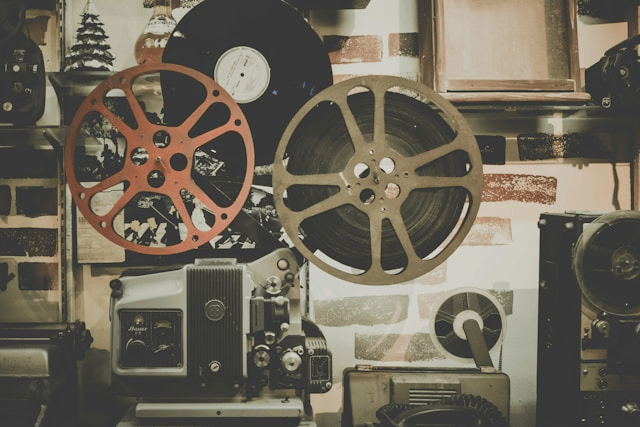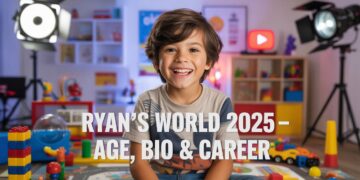When we think about movies, we often picture stunning visuals, powerful performances, and captivating scripts. But there’s an invisible force working behind the scenes that’s just as essential to the cinematic experienc sound design. While audiences may not always notice it consciously, sound design in film plays a crucial role in shaping the mood, guiding emotions, and enhancing the storytelling in every scene.
From the creak of a floorboard to the thunderous roar of an explosion, sound has the power to transform a film from flat to unforgettable. In this article, we’ll explore the importance of sound in movies, break down its components, and dive into how it affects the psychology of audiences.
What Is Sound Design in Film?
Sound design in films refers to the art and technique of creating and manipulating audio elements to support and elevate the narrative. It involves everything the audience hears, including:
-
Dialogue: Spoken words by characters or narrators
-
Foley: Live-recorded sounds synchronized with on-screen actions (e.g., footsteps, clothing rustle)
-
Sound effects: Artificial or enhanced sounds (e.g., explosions, futuristic noises)
-
Ambience: Background environmental sounds (e.g., wind, traffic, birdsong)
-
Music: Original score or licensed tracks that support tone and emotion
It’s important to distinguish between sound design and sound mixing. While sound design focuses on creating and selecting the right sounds, sound mixing is about balancing and layering them for clarity and impact.
Why Sound Design Matters in Filmmaking
Sound design isn’t just a technical layer it’s a storytelling tool. Here’s how it profoundly impacts movies:
Enhances Emotional Tone
A quiet, tension-filled scene gains intensity with subtle drones or rising heartbeats. A triumphant moment swells with orchestral music. Emotion is amplified through sound, often without the audience realizing it.
Builds Immersive Worlds
The richness of sound makes the film’s universe believable. Think of the mechanical hum of a spaceship in Interstellar or the jungle ambience in Jurassic Park. These audio layers ground audiences in the world, making it feel real.
Guides Audience Attention
Filmmakers use sound to subtly direct what viewers should focus on. A sharp sound can shift attention in a scene, while the absence of sound might signal that something important is about to happen.
Strengthens Narrative Flow
Well-designed audio helps maintain continuity between scenes and ensures smooth transitions. It supports pacing and prevents jarring moments that can disrupt immersion.
Types of Sounds Used in Film
Understanding the different types of sound used in movies can help us appreciate how intentionally crafted each moment is.
Diegetic vs. Non-Diegetic Sound
-
Diegetic sound originates from the film’s world dialogue, car engines, music from a radio.
-
Non-diegetic sound includes elements not heard by characters, such as background scores or voiceovers.
Both play essential roles in storytelling. For instance, A Quiet Place masterfully uses diegetic silence to create dread, while non-diegetic music builds tension without a single spoken word.
Use of Silence
Silence is a powerful tool in sound design. It can heighten tension, draw focus, or reflect a character’s internal state. In thrillers and horror films, the absence of sound often precedes a dramatic event.
Iconic Examples
-
Inception: The slowed-down Edith Piaf track and signature “BRAAAM” sound created an entirely new sonic language for suspense.
-
Star Wars: The lightsaber hum, blaster fire, and Darth Vader’s breathing are unforgettable film sound effects that have become cultural staples.
-
The Dark Knight: Joker’s rising violin cue builds unease, even when no action is taking place.
These moments demonstrate how sound editing in movies can become just as iconic as the visuals.
How Sound Design Influences Emotion and Psychology
Sound speaks to us on a subconscious level. It taps into primal instincts and emotional memory, making it a powerful tool for filmmakers.
-
Tension and fear are often built through dissonant tones, whispers, or silence. Horror films rely on these elements heavily.
-
Joy and nostalgia can be triggered by music or sound motifs, often linked to character arcs or themes.
-
Empathy and sadness are enhanced by ambient cues like rain, echo, or soft piano melodies.
Research shows that audiences respond physiologically to sound heart rate increases, muscles tense, or tears form before the brain even registers what’s happening visually.
Collaboration in the Filmmaking Process
Sound design isn’t a solo effort it’s deeply collaborative. Sound designers work closely with directors, editors, and composers throughout the production process.
-
During pre-production, they may contribute ideas for how sound can support storytelling.
-
In post-production, they create and record effects, sync Foley with footage, and mix tracks for final output.
The workflow is precise. Every footstep, background murmur, or explosion must be timed perfectly to visuals. This process can take weeks or months depending on the complexity of the film.
The Evolution of Sound Design in Cinema
Sound in filmmaking has evolved dramatically since the silent film era. From the invention of synchronized dialogue (“talkies”) to surround sound and Dolby Atmos, filmmakers now have advanced tools to create fully immersive experiences.
Digital audio workstations (DAWs), sound libraries, and AI-driven tools have democratized the field, allowing even indie filmmakers to experiment with high-quality sound design. The growing importance of sound in streaming content and VR storytelling continues to push boundaries.
Conclusion
Sound design is one of the most vital, yet often underappreciated, elements of filmmaking. It brings depth to characters, realism to settings, and emotion to stories. The importance of sound in movies cannot be overstated without it, even the most visually stunning film can feel flat or disconnected.









